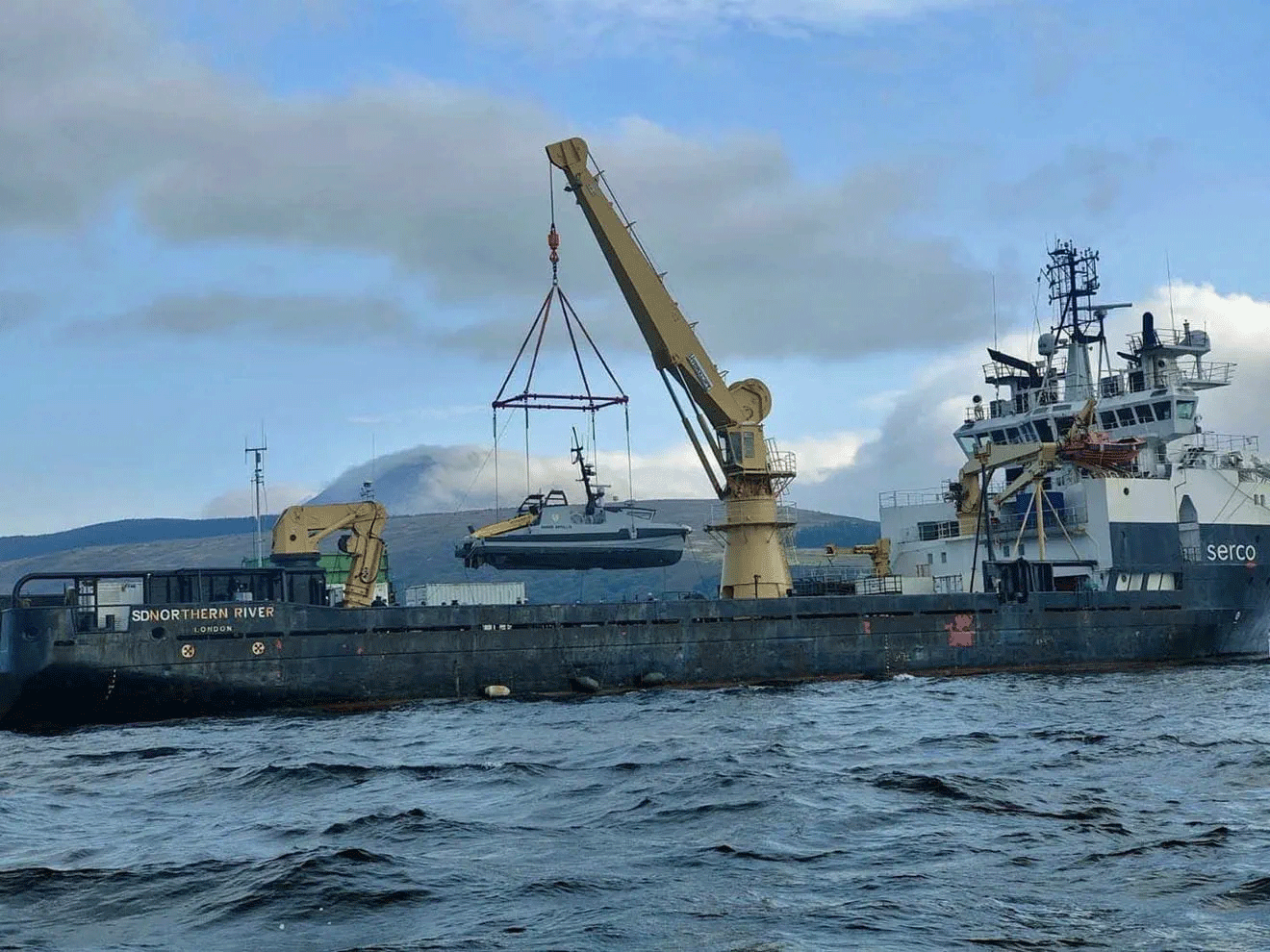The Royal Navy has taken a step closer to deploying autonomous mine hunting technology on front-line operations after a successful trial with an autonomous boat in Scotland.
The prototype Apollo vessel is a small uncrewed boat bristling with mine hunting kit – including towed sensor/synthetic aperture sonar – that can be launched from a mothership into the water to scan the seabed for various mine types.
During a trial in the Firth of Clyde in Scotland, Apollo was launched from SD Northern River, a Defence Marine Services’ ship – helping prove that the boat can be used from a commercial vessel, which could be an option in some operational scenarios.
Ultimately, the successful trial in a challenging environment with good water depth and coastal currents, means the Royal Navy will now take full delivery of Apollo once final upgrades are fitted by Thales, having so far been used as a concept demonstrator over the last three years.
Commander Daniel Herridge, the Commanding Officer of the Royal Navy’s Mine & Threat Exploitation Group, said: “Building on previous success this has been another step in the paradigm shift of delivering Mine Counter Measures capability in a completely new way, harnessing technology and building on the skills of our people to continue to deliver world leading capability.

“Utilizing the MMCM system in the SD Northern River, the team has operated prototype and demonstrator equipment with improved sensors and effectors from a Vessel of Opportunity to enhance sustainability and reach to this rapidly evolving concept of capability delivery.
“The Mine & Threat Exploitation Group will continue to support the enterprise in delivering these important trials to progress operational evaluation and accelerate capability delivery for provision of a modern and high-tech operational capability within the maritime environment, safeguarding the UK’s interests both at home and overseas.”
Apollo comes under the Maritime Mine Counter Measure (MMCM) program that aims to provide advanced autonomous mine hunting equipment to the Royal Navy and France’s Marine Nationale through an agreement managed by Organization for Joint Armament Co-operation (OCCAR).
Apollo was manufactured by L3 Harris under a contract with Thales (France) and delivered to the UK as a concept demonstrator in 2021. Following this successful trial, Apollo has been handed back to Thales for retrofit and upgrades ahead of being handed to the Royal Navy in 12 months’ time.
The total contract value for UK and France is €430m, of which £184m is from the UK. Work under the full production contract will support more than 200 jobs in the UK. This includes jobs with Thales in Templecombe in Somerset and Plymouth in Devon, and across its supply chain including L3 Harris in Portsmouth, Stonehaven in Aberdeen and Alba Ultrasound in Glasgow.
Andy Lapsley, DE&S MHC Team Leader said: “This trial, which successfully demonstrated the potential for the Maritime Mine Counter Measures capability to be deployed flexibly and at pace for the Royal Navy, is a result of years of dedicated effort and collaboration by the MHC team, demonstrating our commitment to advancing mine countermeasures technology and commercial platform integration.”
He added: “I am immensely grateful to all participants across the Defence enterprise who came together to make this happen.”
Navy Force Generation Defence Marine Services delivers eight MOD Service Delivery Areas through two DE&S Marine Services contracts. The SDAs include provision of two offshore ships that support military training and exercises worldwide.

